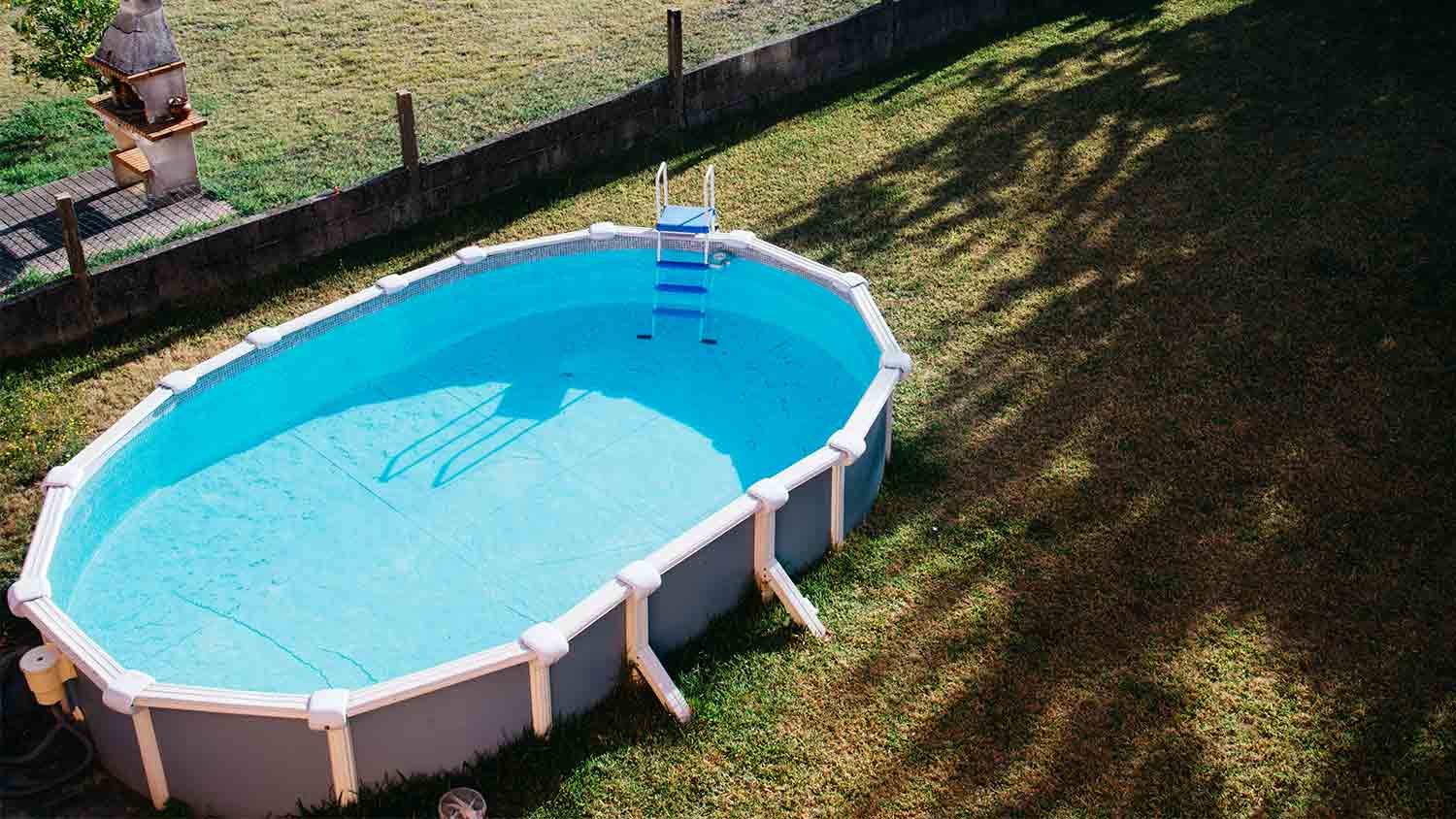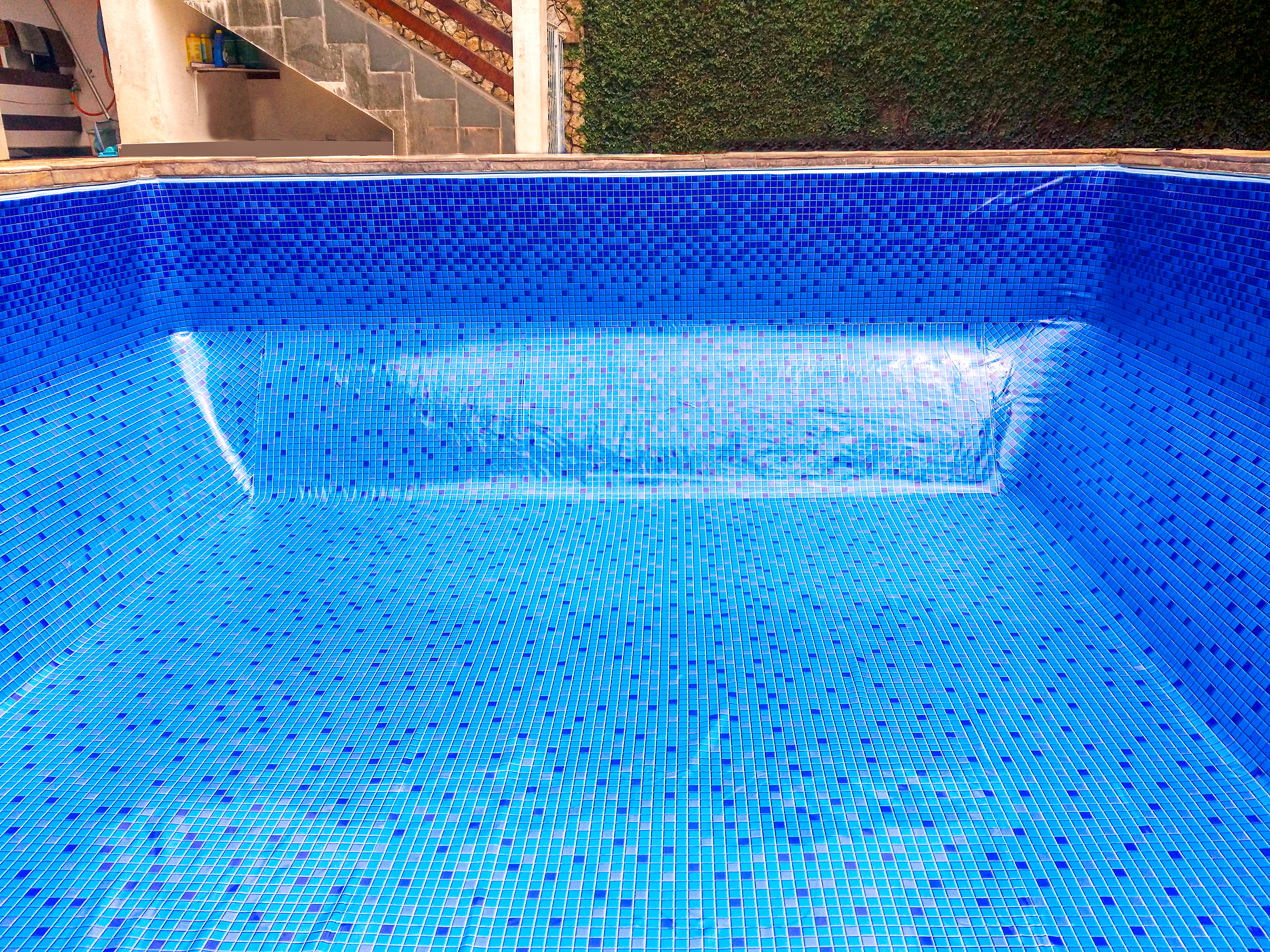
If you’ve been considering installing a new pool in the Buckeye State, this guide will help you understand inground pool costs in Columbus.
Choose the perfect pool for your yard


Above ground pools typically come in round, oval, and rectangular shapes.
Above ground pool sizes range as small as 8 feet and as large as 41 feet on average.
The depth of an above ground pool falls between 42 and 54 inches.
If you're daydreaming about weekend pool parties, afternoon dips, and endless rounds of Marco Polo, installing an above ground pool could be a simple and cost-effective solution. But knowing the size of above ground pools is the key to getting the right one for your needs and home.
The standard size of an above ground pool is often more practical for small properties as well as homeowners hoping to avoid a lengthy and permanent installation. Here's a look at the best types of above ground pools for your backyard and vision.
The size of an above ground pool is one of the first details to nail down when choosing the best model for you. above ground pools typically come in a round or oval shape, though you will find the occasional rectangular pool as well.

Keep in mind that the measurements of an above ground pool account for the width and depth of the water, and not the additional structures around the pool wall. Horizontal seats, pool decks, and equipment typically require at least 2 to 3 feet extra around the sides.
It is always best to work with a local above ground pool installer to determine the placement and necessary support necessary for a safe and sturdy pool.

Homeowners enjoy round above ground pools for their classic look and comparatively lower price tag. Round models don't require as many structural supports as oval and rectangular alternatives, bringing the cost of above ground pool installation, in this case, to $820 to $4,500 on average.
For reference, a 24-foot above ground pool is one of the most common sizes for up to five swimmers. Round above ground pool sizes are noted in diameter.

Homeowners might prefer an oval above ground pool for a handful of reasons. This type of pool may fit better in a long yard or leave more space for patios, porches, and backyard gardens. Ovals are also ideal for getting in those laps.
However, oval pools typically cost more to install since they require additional support for their uneven shape as well as specialized, oval-shaped liners. Oval pools typically cost between $1,500 and $5,800. The most popular size for between four and five swimmers is 15-by-30 feet.
Here are the common measurements of an oval-shaped pool:
10-by-16 ft.
12-by-18 ft.
12-by-24 ft.
15-by-24 ft.
15-by-30 ft.
18-by-33 ft.
21-by-41 ft.

If you're on the hunt for an above ground pool size that mimics the look of an in-ground design, you can opt for a rectangular shape. However, many companies will consider this shape a custom option, and you may find that installation and replacement parts run more on average.
Assume that rectangular pool costs will fall between $1,000 and $6,000, depending on the availability of the model and surrounding structures.
Here are some common rectangular sizes of above ground pools:
9-by-18 ft.
12-by-24 ft.
16-by-32 ft.
The depth of an in-ground pool ranges between 4- and 6-feet deep. As you can expect, the price goes up the deeper the pool. Additionally, not all above ground pool shapes come in all depths, so you may need to make adjustments depending on the size.
In most cases, you'll choose from three types of above ground pools based on depth:
42 in.
48 in.
52 in.
54 in.

The material and structural elements of your above ground pool affect its look, longevity, and of course, the final price tag.
While most above ground pools will last between 10 and 20 years when properly installed, less-permanent soft-sided ones will typically last under a decade. Let's look at the pros and cons of the types of above ground pools below.
These DIY-friendly above ground pools are the simplest types for those looking to give pool life a try in their backyards. They may be made of vinyl or feature air pumps to inflate the walls to keep them upright.
On the plus side, soft-sided pools are:
Less expensive
Easy to move
Easy to install (often directly on flat lawns)
The cons of soft-sided pools, however, include:
Difficult repairs
Rip and puncture more easily
Lack of additional structure

One of the most traditional and stable above ground pool options, professional pool installers will wrap a liner around a steel or aluminum frame either on a concrete slab or a raised deck. You may need a galvanized coating to resist rust, but overall, the durability of a steel and aluminum-framed pool is unmatched.
Some pros of a steel-framed pool include:
Highly durable against leaks
Flexible and customizable
Lightweight
Drawbacks include:
Higher prices
Susceptible to corrosion
The second-most-popular type of above ground pool is made of resin or a combination of resin, steel, and aluminum. Resin pools are a bit less expensive than metal ones and resist corrosion without an additional coating.
The primary perks of resin pools include:
Lower price
Resistant against corrosion
Highly customizable
Keep these cons in mind as well:
Fade in UV light
More easily damaged in winter
Finding the right above ground pool size for you will come down to several factors. Remember, above ground pools are not as large as inground pools. However, you do have various sizes and shapes to choose from.
Start by measuring the area you have available. Some considerations to keep in mind are: choose a location with stable ground, without any overhead power lines, with enough room around the pool for accessibility, and away from city easements and other structures. You’ll want to stay away from trees as they can drop leaves into the water for you to clean. Lastly, you’ll want to use a spot close enough to electrical, as you’ll need to plug in your pool pump and filter.
For a circular aboveground pool, you’ll need to measure for the diameter, but you’ll need the length and width for an oval pool. Don’t forget to measure the depth of the pool as well. Once you have your measurements, you can narrow down the sizes that will fit your space.
Very easy to work with. The installers were very efficient.
Great!, Was able to get them to show up within 2 hours of calling, which was very much needed. Had a new refrigerator delivered that could not be installed. The main water shut off to my house and the shut off to the old refrigerator could not be turned off. Water was leaking everywhere...
Excellent! A real pleasure working with everyone involved from the beginning to the end. Garrett on his consulting and ideas during the initial design phase, Kara in the glass selection and cutting, clear through to Jeremy with the installation. All were great!
They were very punctual and on time. I bought the garage door at Menards and the garage door installers came and put it up for me.
The cost is for installing the toilet. I bought the actual toilet. I have not received the bill for the replacement of the faucet yet.
Good, had some initial issues with the installation of the wrong thermostat. Company replaced at no additional charge.
Mr. Siens did a superb job of measuring and installing our granite counter tops, as well as a new sink and disposal. They look beautiful and the craftsmanship was outstanding. He is also a nice man to work with.
From average costs to expert advice, get all the answers you need to get your job done.

If you’ve been considering installing a new pool in the Buckeye State, this guide will help you understand inground pool costs in Columbus.

The cost of pool liner replacement in Columbus depends on the size and shape of your pool, as well as the liner material and type. Here’s how the costs break down.

Don’t let broken pool lights keep you in the dark. Learn about pool light replacement costs, including unit prices, labor rates, and add-ons.

If your water has high calcium hardness, it's important to learn how to lower calcium hardness in your pool water to avoid corrosion that can harm your pool's plumbing.

If you own a pool, you may wonder: how many gallons in my pool? Read on for our pool volume calculator to learn how much water is in your swimming pool.

Swim from early spring through late fall and beyond by warming the water with a pool heater. Learn more about pool heater installation in this guide.